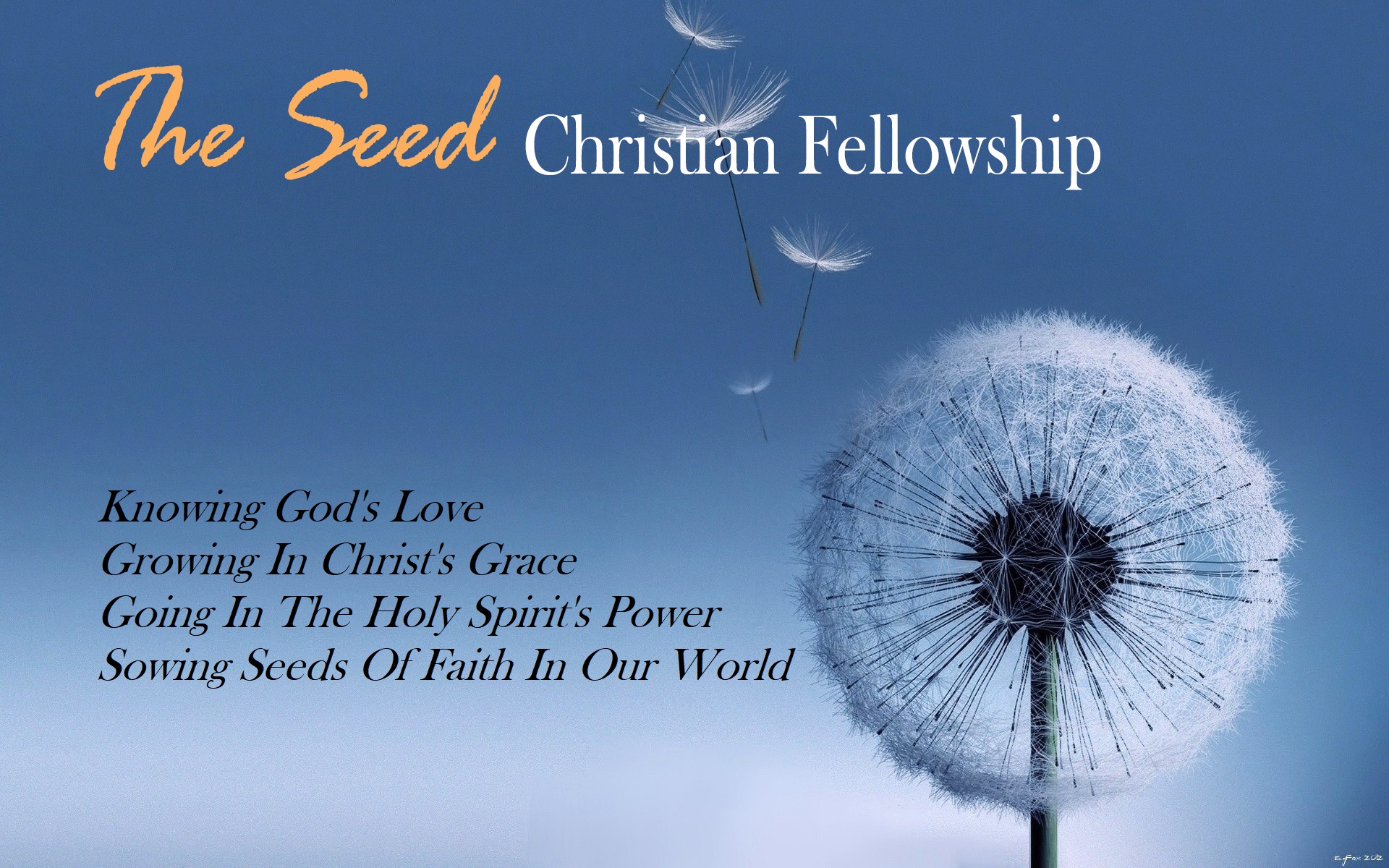Weekly Seed of Faith 1/9/21
Seed of Faith – Uncomfortable – Unwilling – Unleashed By Pastor Dave

“When they saw the star, they were overjoyed. On coming to the house, they saw the child with his mother Mary, and they bowed down and worshiped him. Then they opened their treasures and presented him with gifts of gold and of incense and of myrrh. And having been warned in a dream not to go back to Herod, they returned to their country by another route.” Matthew 2:10-12
Dear Faithful and Fearless Seed Sowers,
Happy Epiphany! The twelve days of Christmas have come to end. January 6th (of every year) is the day the church celebrates Epiphany. Epiphany means “manifestation”. Manifestation means an event, action or object that clearly shows or embodies a theory or abstract idea! Epiphany is the day celebrated as the manifestation of Jesus to Gentiles with the visit of the wise men from the East. I encourage you to read the story of the wise men and their visit to see the Christ-child born King. You can find the story in Matthew 2:1-12.
The story of the wise men visiting the Christ child is an intriguing one. These magi waited, they watched and when they saw the promise of the star fulfilled, they went and worshiped. There’s a group of poignant words for today: waited, watched, went, worshiped.
We have been waiting for this worldwide pandemic to be under control. We have been waiting for our families to come back together. We have been waiting to go back to school in person. We have been waiting for our churches to open so that we can come and worship together in community.
What have you been waiting for? What are you watching for? With the lockdown and quarantine, I am sure that many have had the opportunity to watch a lot of TV programs. Some of us had the opportunity to go outside in December that watch Saturn and Jupitar align and give us a bright star. Nasa called it the Christmas Star, or the Star of Bethlehem. The next time these two planets will align like they just did will be in 800 years. I wonder if this is the star that the wise men were watching for? But the real question for us is: what are you watching for?
Can you comprehend this story of the wise men from east? This traveling caravan of wise-men and servants began a long trip to Israel simply because a particular star was in the sky, alerting them to the birth of the King of the Jews. They traveled for several months before they finally met the Christ-child.
I believe that this story is more than a story to entertain us, it is a story to teach us about our own personal response to Christ, “the child born the king of the Jews.”
Maybe a good little “so what” for each one of us — “what is our response to the child born King of the Jews?’
So what do the wise men have to do with us today? What can we learn from them? I believe that. at times, we are a lot like King Herod—uncomfortable. King Herod was uncomfortable … “he was frightened, and all Jerusalem with him.” The verb used for “frightened” in the original Greek is very descriptive and has been translated into English with many different words like “disturbed, terrified, and frightened.” The verb is in the active voice and it literally means “to shake, stir up, trouble or agitate.” the Bible says that he was terrified of a new king, even if that king was a baby.
I also believe that, at times, we are a lot like the chief priests and the teachers of the law–unwilling. They new that the Messiah was prophesied to be born in Bethlehem, five miles from Jerusalem. Yet, they were unwilling to go five miles.
My hope and prayer is that we will learn to overcome our uncomfortableness, unwillingness and become unleashed in our faith as the Magi were.
Unleashed with the news of the birth of the Christ child.
Unleashed like the wise men to bow down and worship the King with the gifts of our lives.
We sit at the brink of a new year. The slate is clean. The canvas of 2021 is blank. Are we going to be uncomfortable, unwilling or unleashed in 2021?
Jonathan Edwards, the 18th-century revivalist, sat down at age 17 and penned 21 resolutions by which he would live his life. He added to this list until, by his death, he had 70 resolutions. Edwards put at the top of his list: “Being sensible that I am unable to do anything without God’s help, I do humbly entreat him by his grace to enable me to keep these resolutions.…Remember to read over these resolutions once a week.”[i]
Edwards did not casually make New Year’s resolutions with an expectation of eventually breaking them. Each week he did a self-check. He regularly summed up how he was doing and sought God’s help in the process.
What are our resolutions for this New Year? What are we going to write on our slate for 2021? What are we going to paint onto the canvas of our life in 2021? What are our resolutions for our church? What are our resolutions for children’s ministry, youth ministry and adult small-group ministries for 2021? Where is God calling us into fellowship and mission work? You all know we have supported Children Everywhere for 20 years. In 2010 we began having NOISY SUNDAY and have just passed the milemarker of raising $25,000 for our rescue homes in Zambia. Today our leadership board voted to begin investing in a new ministry from India. How in the world did God lead us here? Byron was walking by the house with his dog. Jac and I were outside and my wife felt this overwhelming impression that this man was a special person in God’s eyes. “Hey, what do you do for a living?” Not your average thing to say to people walking their dog by our house. I can honestly say she’s never asked that another person in her entire 66 years of life. Byron stopped and we pursued into a deep and meaningful conversation about ministry. A month later, our board is on board to support women in India. Is this a fulfillment of a life of learning to WAIT, WATCH, WENT, WORSHIP? Should I mention my wife’s word of intention for 2020 was WAIT?
When I became a Christian my mentor and pastor asked me to pick a life verse. The first verse that I memorized was Proverbs 3:5-6 — “Trust in the Lord with all your heart and lean not on your own understanding; in all your ways acknowledge him, and he will make your paths straight.”
But the verse I chose as my life verse was from Paul’s letter to Philippians … Philippians 3:10-11:
I want to know Christ and the power of his resurrection and the fellowship of sharing in his sufferings, becoming like him in his death, and so, somehow, to attain to the resurrection from the dead.
Paul continues to encourage the church in Philippi while he sits in prison
12 Not that I have already obtained all this, or have already been made perfect, but I press on to take hold of that for which Christ Jesus took hold of me. 13 Brothers, I do not consider myself yet to have taken hold of it. But one thing I do: Forgetting what is behind and straining toward what is ahead, 14 I press on toward the goal to win the prize for which God has called me heavenward in Christ Jesus.
Paul the Apostle wrote in his letter to the Philippians that he wanted to forget what was behind and he wanted to strain for what was ahead. He wrote that he wanted to win the prize of the high calling of Christ Jesus.
My “so what” question for you today as you make your New Year resolutions: “are you in it to win it?”
Are you going to forget what lies behind and straining forward to what lies ahead?
As the wise-men waited, watched, went, and worshiped–can you answer this question: Am I ready to wait, watch and worship? Am I in it to WIN it?
Whatever our personal resolutions may be, whatever our resolutions for our church may be, I pray we all seek God’s help, regularly check up on how we are doing, and I pray we become unleashed to be in it to win it — to finish the race that is set before us.
My prayer for each and every one of us is that we all would be unleashed! Unleashed to seek Christ! Unleashed to ask for directions! Unleashed to worship in spirit and truth!
Let us make one resolution as God’s family: Let us resolve to simply follow like the wise men and then return home a different way! Let us offer God our blank slates for our lives in 2021. Let us agree with Jonathan Edwards, “Being sensible that we are unable to do anything without God’s help, we humbly entreat God’s grace to complete everything that Christ has planned for us.” Hey, it could be as honest and simple as asking the dogwalker, “What do you do for a living?” Paul preached Christ–and strained for what was ahead. Who knows what 2021 holds for each of us? GOD. GOD KNOWS. Wait. Watch, Went. Worship.
Let us pray — God of creation, your love is so amazing. Help us not to be like Herod—uncomfortable because we only have enough room for one king–me, myself and I. Help us not to be like the chief priests and teachers of the law—unwilling to let the news of Christ rule in our hearts but let us become unleashed like the wise men. Foolish to abandon ourselves fully by following the newborn King! May we all be unleashed to seek you, to follow you, and to find you. May we be unleashed to worship You in spirit and in truth! Give us dreams and visions of Your great love and lead us by Your guiding light. We pray we will wait, watch, and worship. We pray our gifts will be a gift fit for the newborn, CHRIST CHILD King! Amen.
See you Sunday!
God loves you and so do I,
Pastor Dave
www.theseedchristianfellowship.com
Copyright © 2018 THE SEED CHRISTIAN FELLOWSHIP, All rights reserved. May you be blessed by God’s grace and love.
Our mailing address is: 6450 Emerald Street Alta Loma, California 91701



